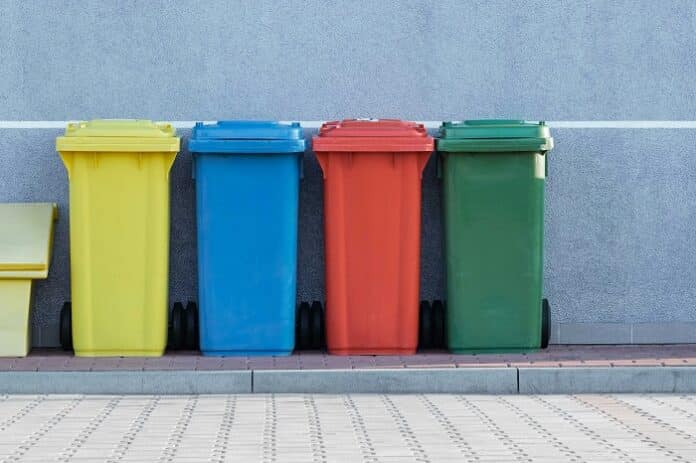How often do you think about where your waste ends up after tossing it in the bin? If you’re like most people, probably not very often. But the truth is, proper waste disposal isn’t just about keeping your surroundings tidy. It’s about safeguarding the environment, supporting your local community, and even saving money in the long run. Let’s unpack why managing waste responsibly deserves your attention.
1. Protecting the Environment
Ever heard of landfills leaking harmful chemicals into the soil and water? It’s not just a scary story; it happens when waste isn’t properly managed. Hazardous materials, plastics, and non-biodegradable items can take years—or even centuries—to break down, polluting ecosystems along the way.
By separating recyclables, composting organic waste, and disposing of hazardous materials correctly, you help reduce the strain on landfills and the environment. Think about it: every time you choose to recycle that soda can or properly dispose of a battery, you’re helping protect wildlife, improve air quality, and conserve resources. Small changes add up, and the planet benefits.
2. Boosting Public Health
Did you know improper waste disposal can directly affect your health? Rotting garbage attracts pests like rats and flies, which carry diseases. When waste builds up in open areas, it releases harmful gases like methane, contributing to air pollution and respiratory issues for nearby communities.
On the flip side, when you have an effective solution for waste disposal, it helps prevent the spread of disease and creates cleaner, safer spaces for everyone. It’s not just about looking clean—it’s about staying healthy. By sticking to responsible practices, you’re making a healthier environment for yourself and those around you.
3. Reducing Costs for Everyone
Here’s something that might surprise you: proper waste management can save money. When communities and businesses focus on recycling and composting, they cut down on the volume of waste heading to landfills. Landfill space is expensive, and so are the costs of transporting andprocessing garbage.
Recycling programs also provide opportunities to reuse materials, which means less reliance on new resources. For homeowners, ensuring kitchen waste is handled efficiently—such as by maintaining a functional garbage disposal—can reduce the strain on local waste systems. Investing in a garbage disposal warranty may help prevent unexpected repair costs, keeping the system running smoothly and extending its lifespan. Similarly, businesses that implement waste reduction strategies, like repurposing materials or optimizing disposal methods, could lower their operational expenses. So, whether it’s on a community level or an individual one, smart waste disposal practices can lead to significant cost savings.
4. Conserving Valuable Resources
Ever wonder what happens to materials like glass, paper, and metal when you toss them in the recycling bin? They’re transformed into new products, reducing the need to extract raw materials from the Earth. For example, recycling aluminum saves 95% of the energy needed to produce it from raw materials.
By disposing of waste responsibly, you help conserve water, energy, and natural resources. It’s a simple way to reduce your carbon footprint and support sustainable practices. Imagine the impact if everyone made a habit of recycling or composting their waste—it’s a step toward a more resource-efficient future.
5. Setting an Example for Future Generations
If you’ve got kids, nieces, nephews, or even younger colleagues, you know how much they learn by watching the people around them. When you prioritize proper waste disposal, you’re setting a standard for the next generation to follow. Actions like separating recyclables, avoiding single-use plastics, and supporting waste reduction programs show others that managing waste responsibly isn’t just important—it’s achievable.
Communities that embrace proper waste management tend to foster a culture of sustainability. This means cleaner parks, healthier neighborhoods, and better opportunities for everyone. It’s not just about what you do today but about leaving behind a positive legacy that others can build on.
What Can You Do Right Now?
Now that you know why waste disposal matters, how can you start making a difference? Begin by assessing your habits at home or work. Are you recycling everything you can? Are you separating hazardous materials like batteries and electronics? Here are a few simple steps to get started:
- Learn your local recycling rules – Different areas accept different materials. Check to ensure you’re sorting correctly.
- Compost your food waste – Organic scraps like fruit peels and coffee grounds can break down into nutrient-rich compost for gardens.
- Avoid single-use items – Opt for reusable bags, bottles, and containers whenever possible.
- Properly dispose of hazardous materials – Don’t toss paint, batteries, or electronics in the regular trash. Look for designated drop-off points.
- Support waste reduction programs – Participate in community cleanups or advocate for better recycling facilities in your area.
These actions might feel small, but they’re powerful when done consistently. Plus, once you get into the habit, it’s easier than you might think.
It All Comes Down to Responsibility
At its core, proper waste disposal is about taking responsibility for what we consume and how we handle it afterward. It’s about making thoughtful choices that benefit not only the environment but also our communities and ourselves. Whether you’re recycling a bottle, composting food scraps, or avoiding products with excessive packaging, your actions matter.
So next time you toss something in the bin, pause for a moment. Could it be recycled? Composted? Disposed of in a safer way? By making waste management a priority, you’re contributing to a cleaner, healthier world—and that’s something everyone can get behind.






